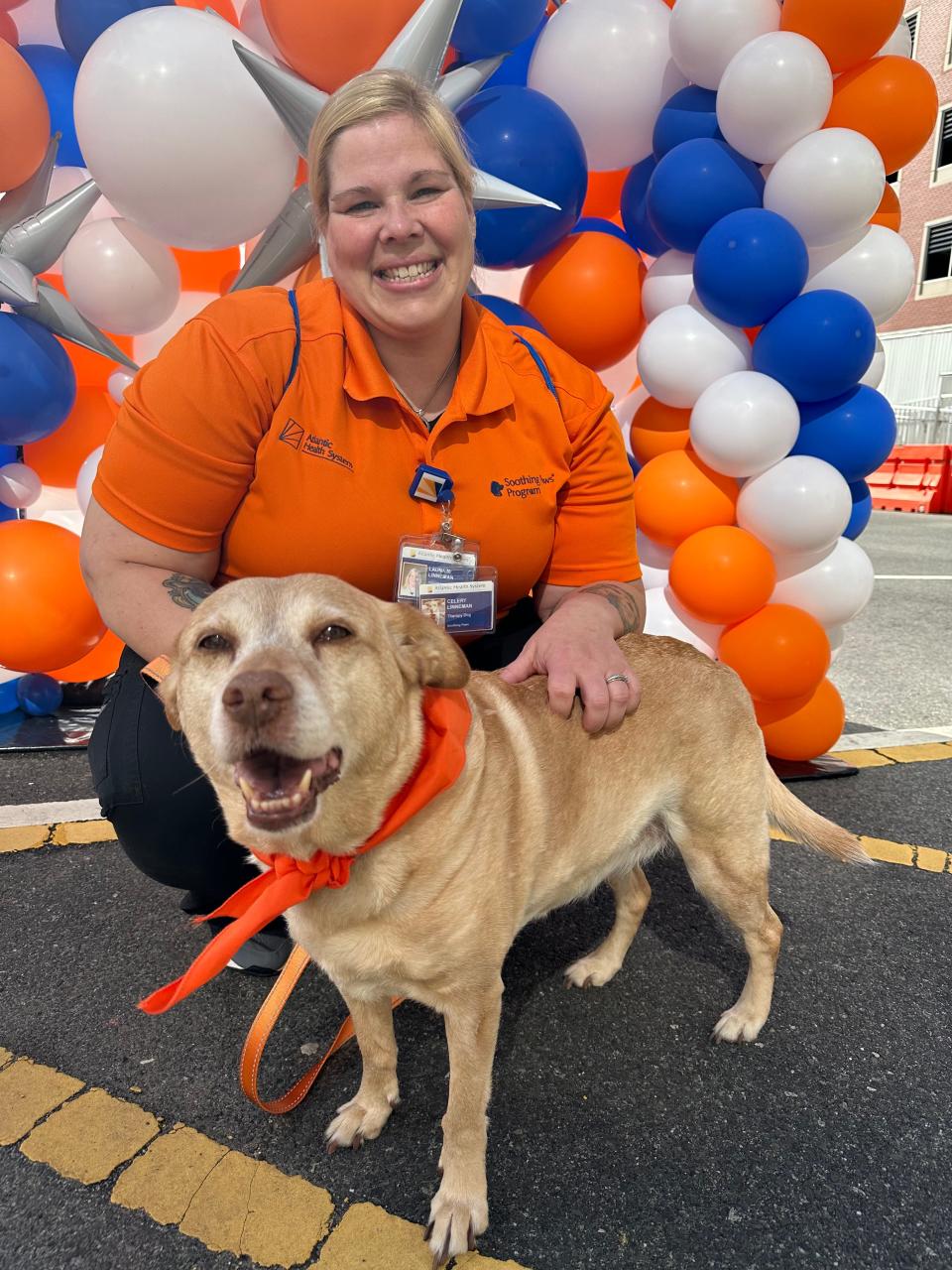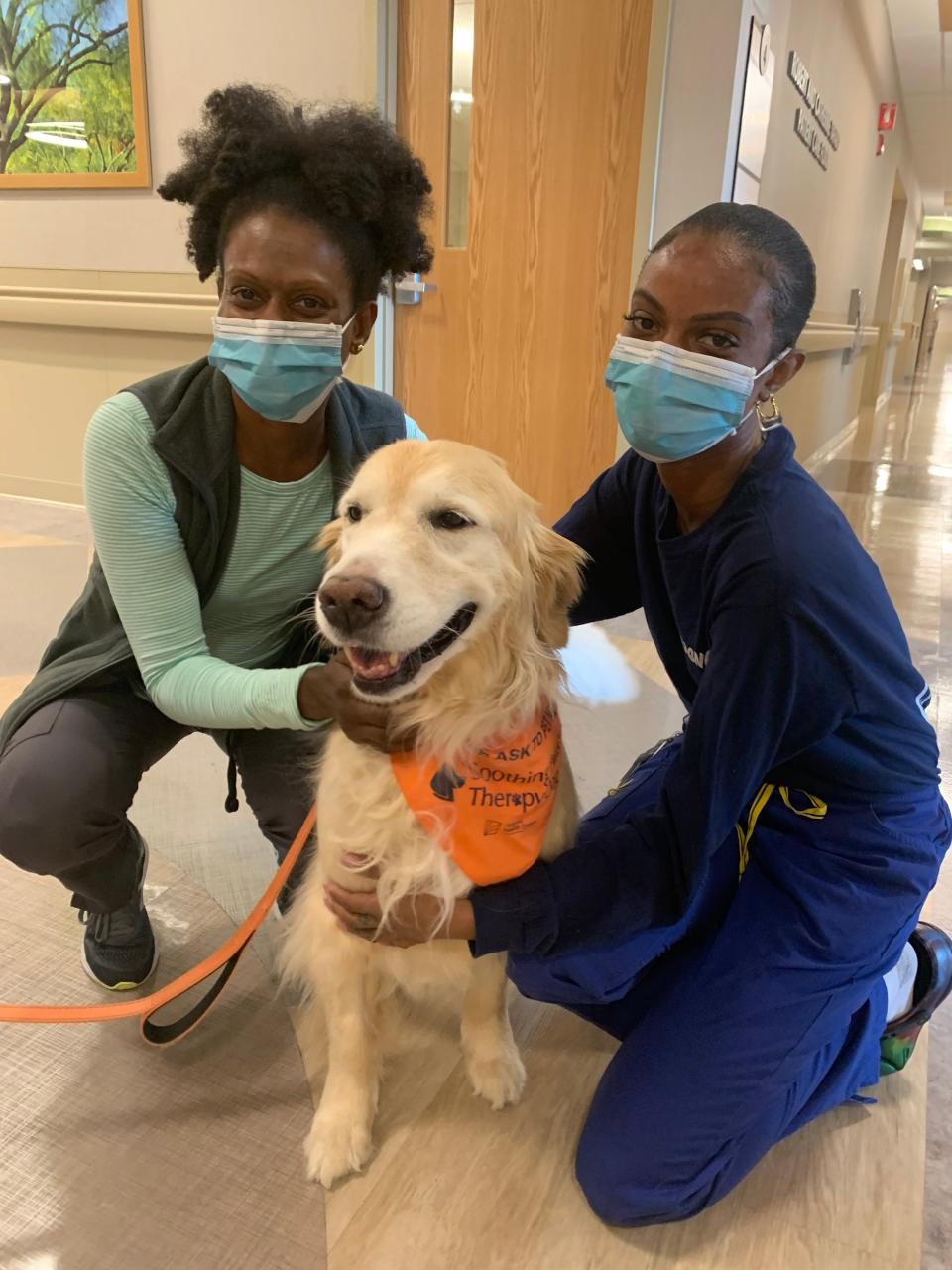Would your pup make a good therapy dog? Morristown hospital offers advice for pet owners
More than 100 people attended a therapy dog seminar at Morristown Medical Center earlier this week to get tips that could apply to any human-dog relationships.
Therapy dogs — known for their ability to provide emotional support and companionship — play a vital and growing role in various health care settings, including hospitals and rehabilitation centers, said Carrie Plantamura, program manager for Soothing Paws, an animal-assisted intervention program at the hospital.
Atlantic Health System, which runs the program, utilizes over 100 therapy dogs across its facilities, including hospitals in Morristown, Hackettstown and Newton.
Speakers Suzanne Clothier, a trainer and author, and Ann Howie, a psychotherapist, trainer, and author, had a shared respect for dogs as well as a shared message they've spent their lives trying to impart: It’s not your dog. It’s you.

“A close friend of mine once came to one of my seminars with multiple complaints about her dog,” Clothier, author of “Bones Would Rain from the Sky: Deepening Our Relationships with Dogs,” said during the meeting Tuesday. “After closely observing their interactions, I realized that the dog was reasonably well-behaved, but the relationship needed improvement.“
Temperament test
Clothier developed her own assessment tool (Clothier Animal Response Assessment Tool, or CARAT) to judge a dog's capacity to be a therapy dog. CARAT evaluates temperament traits like arousal level, adaptability, physical energy, sensory awareness, persistence, sociability, patience, social tolerance and social use of space.
A good therapy dog will be friendly, patient, confident, gentle and at ease even in situations where the unexpected happens frequently, she said.
More: NJ dogs are getting sick from pot, prescription meds and other household items
How to build a strong relationship
When you leave the room, do you leave your dog behind? Do you make eye contact and invite them to come with you?
Howie, a clinical social worker with extensive experience in therapy animals, highlighted the significance of establishing a solid foundation between the handler and the therapy dog.
Just as in human relationships, effective communication, clear signals, respect and commitment are essential when it comes to strengthening a bond with a therapy dog, said Howie, author of “Teaming with Your Therapy Dog and Assessing Handlers for Competence in Animal-Assisted Interventions.”
Much like the dogs themselves, a successful handler needs to be patient and willing to put time and effort into the relationship.
Celery the therapy dog

Laura Linneman, director of animal care for the Humane Rescue Alliance at St. Hubert's Animal Welfare Center, has a yellow lab mix named Celery, now 13, whom she found in a shelter when she was estimated to be a year old. Celery visits patients and staff weekly at the Behavioral Health Unit at Morristown.
“She enjoys being near people, often sitting in front of them. She's too big to be a lap dog; she has a habit of swinging her butt into people when she’s seeking attention and pets,” said Linneman. "We noticed Celery's joy being around people when we first got her, which made us think she would be good for therapy.”
Celery’s been at it for 12 years now. After the Behavioral Health Unit sessions, she’ll break off to see patients and sometimes even staff members.
“She likes to just kind of hang out in front of them," Linneman said. "Sometimes they'll join her by sitting on the floor.”
Gene Myers covers disability and mental health for NorthJersey.com and the USA TODAY Network. For unlimited access to the most important news from your local community, please subscribe or activate your digital account today.
Email: myers@northjersey.com; Twitter: @myersgene
This article originally appeared on NorthJersey.com: Morristown NJ hospital offers therapy dog advice for owners

